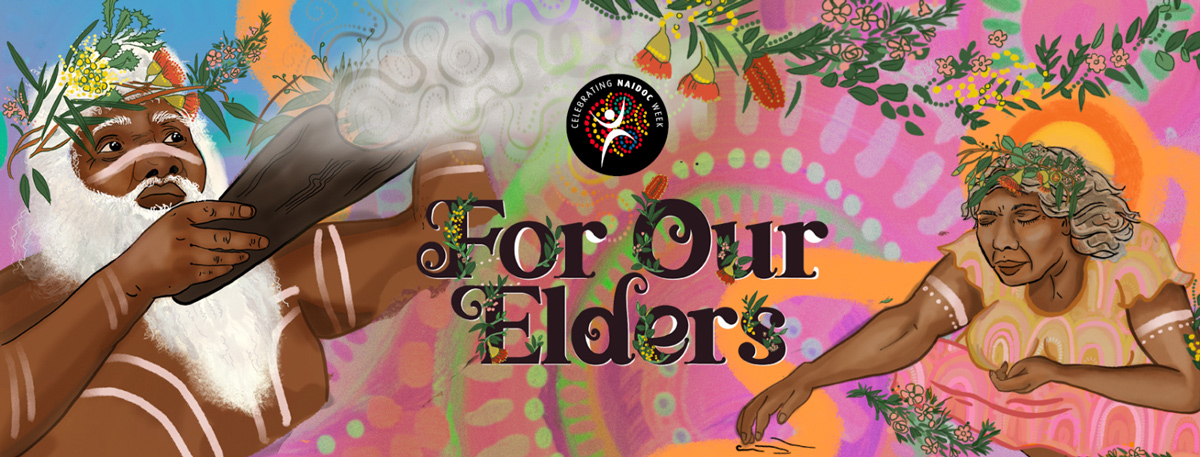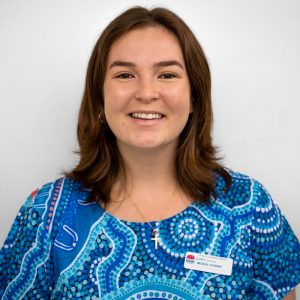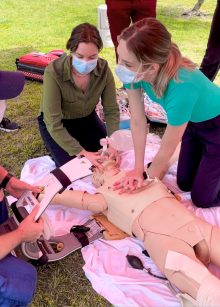This year’s NAIDOC Week theme could not be more apt for Western Sydney University (WSU) medical student Lucy Schulz.
The theme ‘For Our Elders’ especially resonates with Lucy, a proud Anaiwan woman who grew up on Gumbaynggirr country.
“Elders have played an important role in my life,” she explains.
“They’ve always been there for me, including at the schools I attended, and have been a positive influence on me.
“In general, I think NAIDOC Week is about celebrating the history and culture, and recognising that it is still very much relevant and something we need to celebrate each year.
“Growing up, I’ve always been interested in Indigenous culture and my community’s health.
“Even in science at school, we did a whole semester on Aboriginal traditional medicine, and I was really fascinated by that.”
Lucy, who is the current GPSN Vice Chair at WSU, is passionate about Indigenous health, which is the main reason she decided to become the first doctor in her family.
“At WSU, we have a real focus on Indigenous health compared to other universities, and I went to this university purely because of their excellent Indigenous curriculum,” she said.
“I do think people like me have a certain perspective, and that we can use that to give back to people – not just Indigenous people, but other people which may have been disadvantaged in other ways.”
Lucy has already had some positive experiences working with Indigenous patients, especially during a paediatrics placement.
“I was in the outpatient department specifically for Indigenous kids, and I always wear cultural shirts when I’m in those environments,” she said.
“One particular experience with a young Indigenous patient has stayed with me.
“This kid was known to not talk to people or strangers, so in my consultation with him I started talking ‘yarn style’.
“It really opened up our conversation and he actually started talking to me, and I had quite a good consultation with him. So that was really cool.
“Another time I went out west to do a road trip with the Rural Doctors Network, and the community out there are always so welcoming of medical students and medical people in general.
“The mental health team were all Indigenous and when I told them about my cultural background, they were really impressed I was studying to be a doctor and made me feel so good about myself, so that was a really positive and affirming experience.”
Lucy’s passion for Indigenous health led her to help coordinate the inaugural GPRA/GPSN Cultural Immersion Camp in Yarrawarra on her home Gumbaynggirr country in New South Wales.
The 2022 camp proved a huge success, and will run again from 7-9 July this year during NAIDOC Week.
“I suggested my home town for the camp, as we’ve got a great venue, everyone there is so passionate, and I know that our Elders absolutely love to foster our learning,” she said.
“The camp features all the aspects of Indigenous culture that I think are important, including language, sacred sites, food, nature, and dancing, and the totems, the stories, and of course the Elders.
“I feel last year’s attendees definitely got a lot out of it, and I think the more we learn, the more we can have a better perspective on Indigenous health and improve what we do as doctors.”
As for Lucy, where does she see herself in 10 years’ time?
“I want to be a rural generalist and that has pretty much never changed,” she said.
“Down the line, I really want to do work in Indigenous communities, no matter where or how that is. That’s where my passion lies.”






